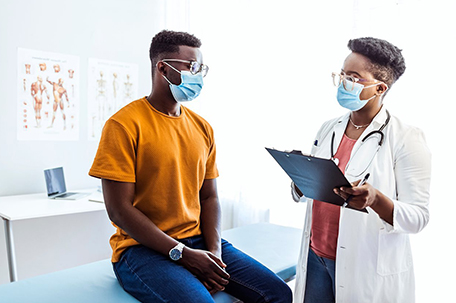
BPT
The pandemic caused massive disruptions in health care, from cancellation of elective surgeries to patients putting off critical screenings and procedures, including colonoscopies, mammograms, knee or hip replacement surgeries, and even in some cases more urgent heart procedures.
Consequently, many preventable health problems may show an alarming increase in the near future. Anesthesiologists who provide anesthesia or sedation for many of these procedures urge patients to get back on track and schedule their tests, screenings or surgeries as soon as possible, especially because some hospitals and health systems are experiencing a backlog.
Nearly one in four people experienced a disruption to their plans to have a procedure or test during the past year. Of those, 16% said they are planning to reschedule, but haven’t yet, and 10% aren’t planning to reschedule at all, according to the National Poll on Healthy Aging. Nearly 10 million cancer screenings were missed during the pandemic, according to cancer researchers.
“With safety measures in place and COVID-19 numbers decreasing, it is vital for everyone to resume their lifesaving and life-changing screenings and procedures,” said Randall M. Clark, M.D., FASA, president of the American Society of Anesthesiologists (ASA). “Your health and well-being may depend on it.”
If you are scheduling a long-delayed screening or procedure that requires anesthesia or sedation, ASA recommends seven ways to ensure you are prepared and as healthy as possible.
Practice healthy behaviors
Adjusting your diet to include healthier choices in the weeks leading up to your surgery or procedure can help you become stronger and recover quicker. Exercise can also help reduce complications and hospital stays, so if you are active, keep it up, and if not, consider working with your doctor to increase activity levels in the weeks before surgery. Losing weight can help too, as excess weight can make it more challenging to administer anesthesia safely.
Stop smoking
Smoking increases the risk of anesthesia-related problems such as wound infections, pneumonia, and heart attacks. Quit smoking as soon as possible before the procedure — preferably a week or more before — and for as long as possible afterward. Quitting even the day before surgery helps.
Connect with your anesthesia care team
Be sure your anesthesia care is led by an anesthesiologist, a medical doctor who has 12-14 years of education and clinical training to deliver safe, high-quality care. Whether you have an appointment with your anesthesiologist in advance of your procedure or meet them immediately before, be sure to share details about your overall health, medications you are taking, use of recreational drugs (including marijuana) and alcohol, your previous experience with anesthesia, your fears, and any questions you have. If you have concerns, reach out to schedule a call or meeting with the anesthesiologist in advance.
Understand COVID-19 testing
You likely will be tested for COVID-19 a day or two before your surgery. If you have had COVID-19 recently, your surgery may be delayed for your own safety. Unvaccinated patients may need to wait seven weeks after a COVID-19 infection before having a procedure, depending on the severity of symptoms.
Know what — and when — to eat and drink
When your surgery is planned, your anesthesia care team will let you know when to stop eating or drinking prior to the procedure. The answer may vary depending on factors such as the type of anesthesia you are having and the time of day your procedure is scheduled. In many cases, you will be told to stop eating eight hours before the surgery, but you may be able to drink clear fluids such as coffee, water, or pulp-free juice up to two hours before.
Don’t assume you should stop your medications
In most cases, you should continue taking your medications before the procedure because they are important to your health. There are exceptions, so be sure your surgeon and anesthesiologist know which medications — both prescription and over the counter — you are taking, as well as any vitamins and supplements, so they can direct you.
Learn about your pain management options
Many people assume opioids are the only drugs that will relieve post-surgical pain. In fact, there are many pain management alternatives that don’t carry the same risk of misuse, including ibuprofen and acetaminophen. Your anesthesiologist will work with you to develop a safe and effective plan to help you manage your pain.
Advance preparation can help ensure you are ready for a procedure, but it’s important to take that first step by scheduling your important test or surgery without delay. Download ASA’s “The Path to Safe Surgery” fact sheet for more information.

















Leave a Comment